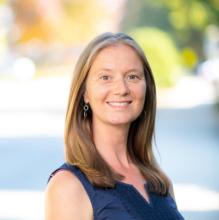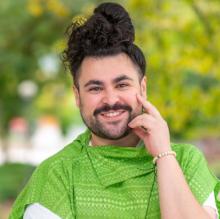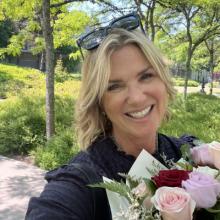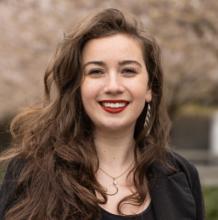Working closely with patients and health authorities/agencies (such as Fraser, Northern, and Perinatal Services BC), Sarah is a knowledge translation scientist and advocate for patient-centred care. Her research focuses on shared-decision making on birth after caesarean, and supports women and their care teams to make informed, shared decisions for mode of delivery.
What does being a Public Scholar mean to you?
To me, being a public scholar means engaging with knowledge users, particularly patients, in mutually beneficial, collaborative health services research that is action-oriented, relevant, and focused on impactful solutions.
In what ways do you think the PhD experience can be re-imagined with the Public Scholars Initiative?
I hope that this initiative encourages the university to offer PhD students time and funding to build relationships with research end users. I strongly believe this is the key to making a contribution to the public good. The Interdisciplinary Studies Graduate Program, my department, already offers this flexibility and is home to many PhD students whose health research degrees have a participatory or social justice bent.
How do you envision connecting your PhD work with broader career possibilities?
I would prefer to pursue an academic path rather than one outside of academia, but I expect my journey will be non-traditional. Nurturing mutually beneficial relationships, networking, and just simply being friendly and open to new partners will be the key, I think, to building my career. After all, it's not what you know, it's who you know.
How does your research engage with the larger community and social partners?
I am working in partnership with an advisory group of key stakeholders at different levels of the health care system: patient advocates, nurse and physician 'champions', Fraser and Northern Health Authority managers and directors, and Perinatal Services BC. Together we are co-developing a patient decision aid to support shared decision-making for birth after caesarean, which will be tailored to the needs of different BC communities and stakeholder groups.
Why did you decide to pursue a graduate degree?
I began my doctoral studies out of a desire to produce research that supports women to make informed choices in pregnancy and birth.
Why did you choose to come to British Columbia and study at UBC?
My supervisors Jude Kornelsen and Patti Janssen are internationally renowned researchers in normal childbirth and I leaped at the opportunity to work with them.
We are co-developing a patient decision aid to support shared decision-making for birth after caesarean, which will be tailored to the needs of different BC communities and stakeholder groups.




